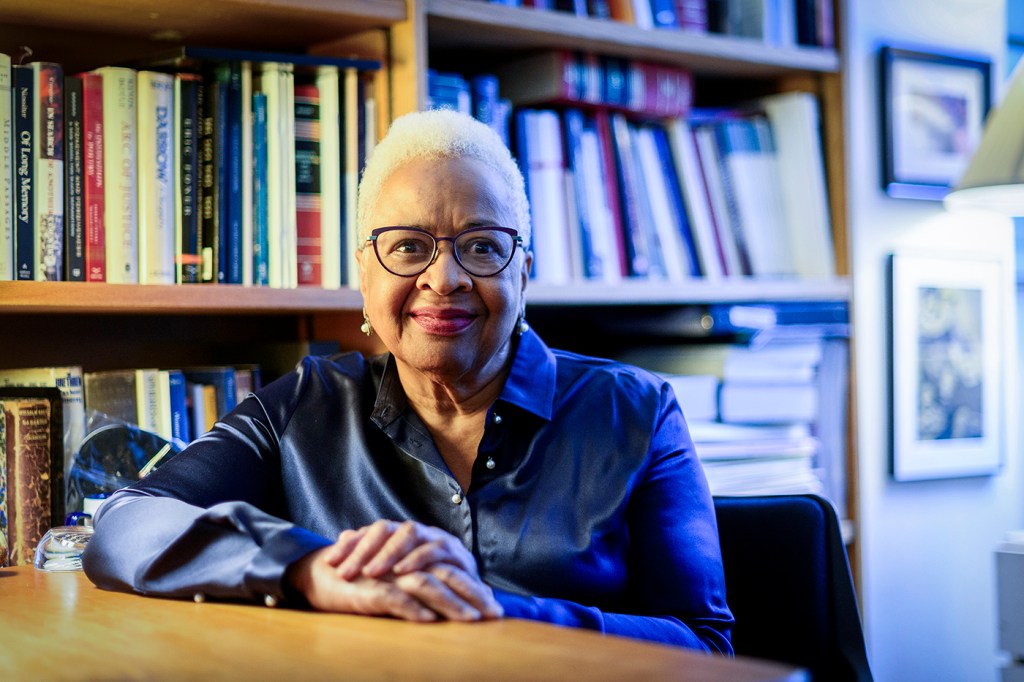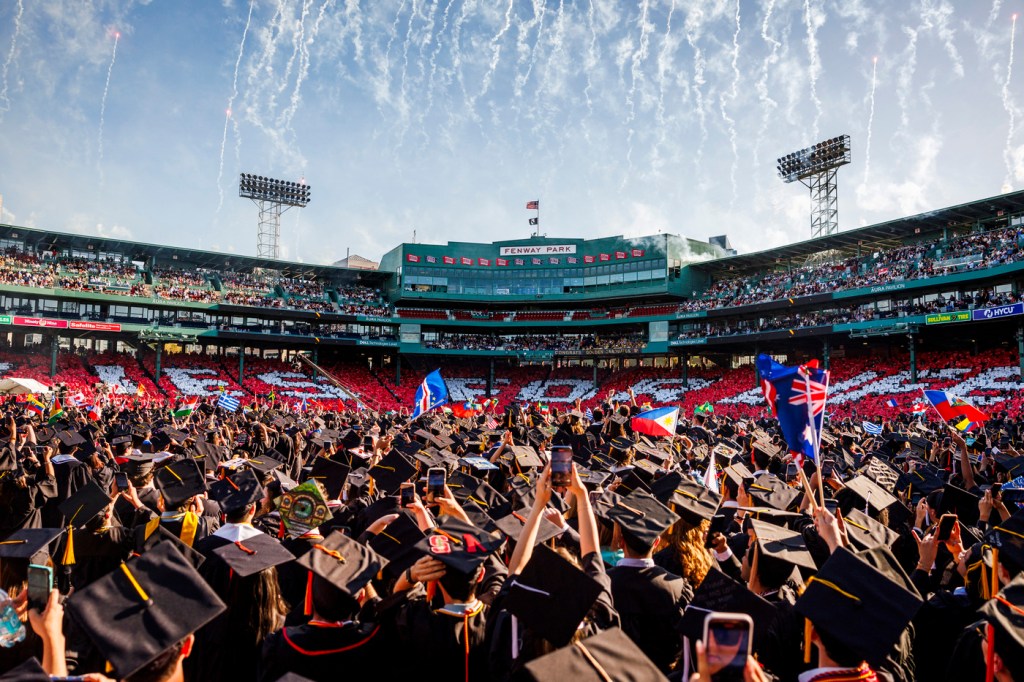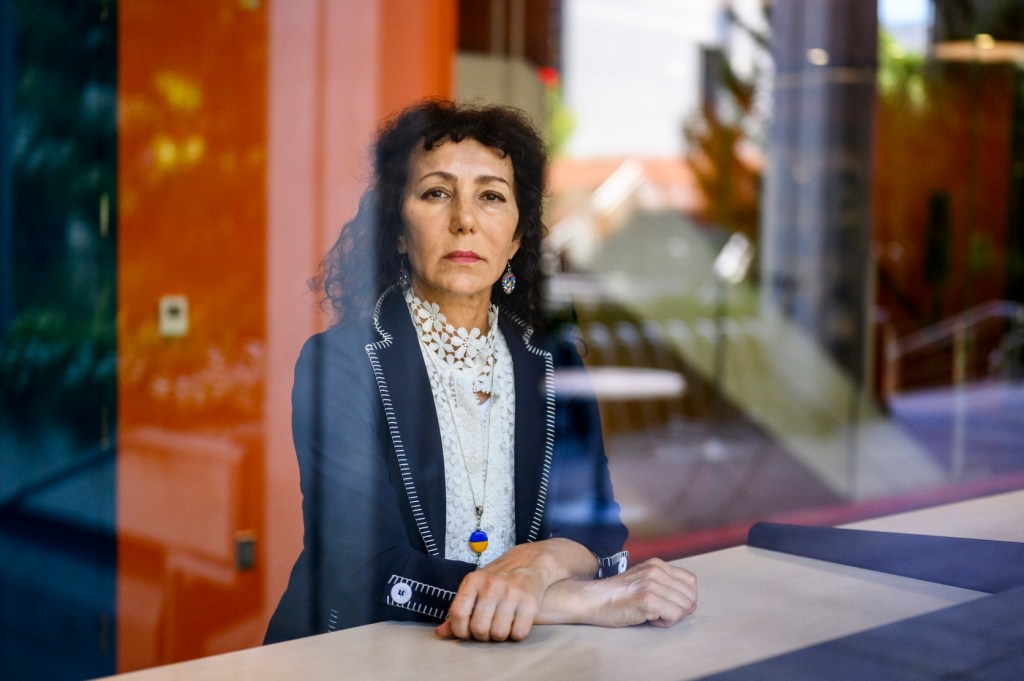Northeastern hosts Boston high school students for Calculus Field Day
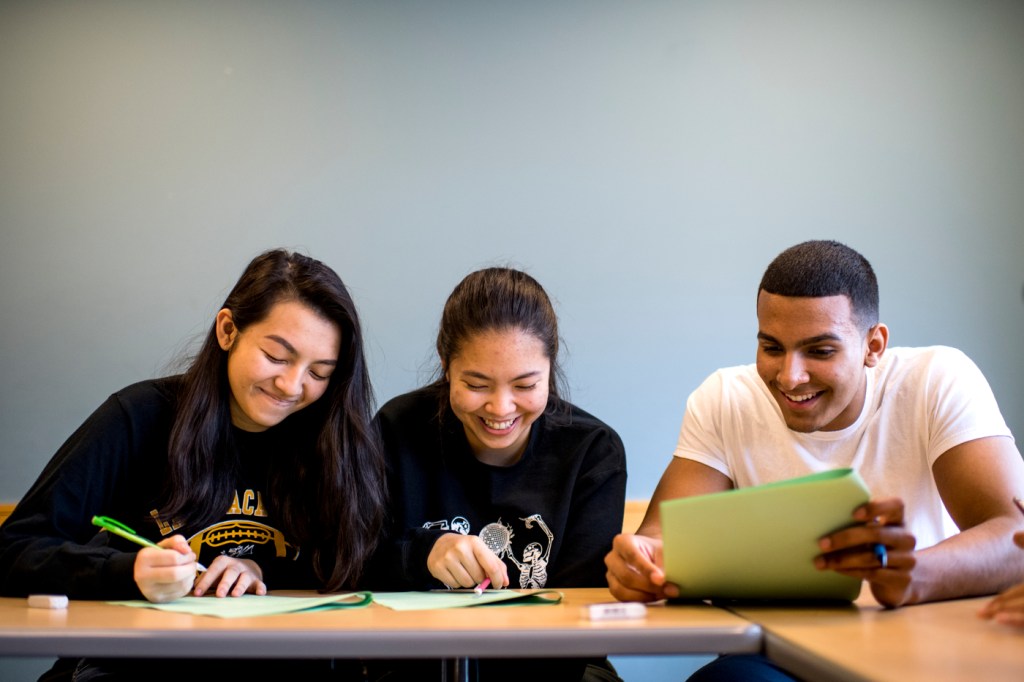
The calculus test began, and the excited voices of 18 high school students quickly turned to whispers. The students, working in groups of three in a classroom on Northeastern’s Boston campus, had 30 minutes to answer three challenging questions without using a calculator.
The students puzzled over the exam, and brainstormed how to solve the problems. They could be heard saying, “Why is it zero?”, “You did that well,” and “How do you factor that?” as they worked out their solutions. One group clapped with delight as it formulated its answers.
The students were among the more than 100 Boston high-schoolers who participated on Tuesday in Calculus Field Day, which is organized by Northeastern’s math department. The event is designed to challenge students’ knowledge in calculus, help them prepare for their AP Calculus tests in the spring, and nurture their passion for mathematics.
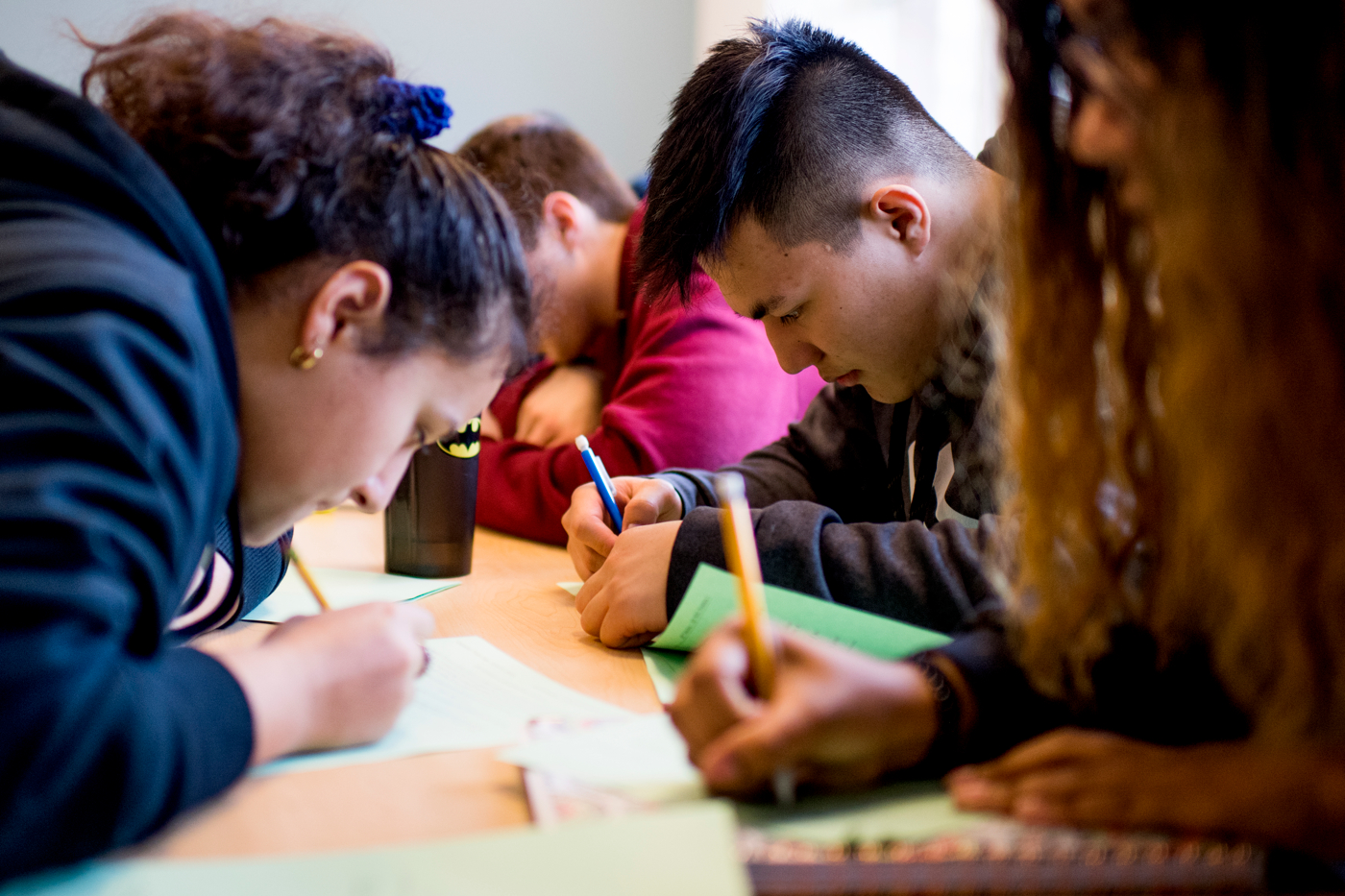
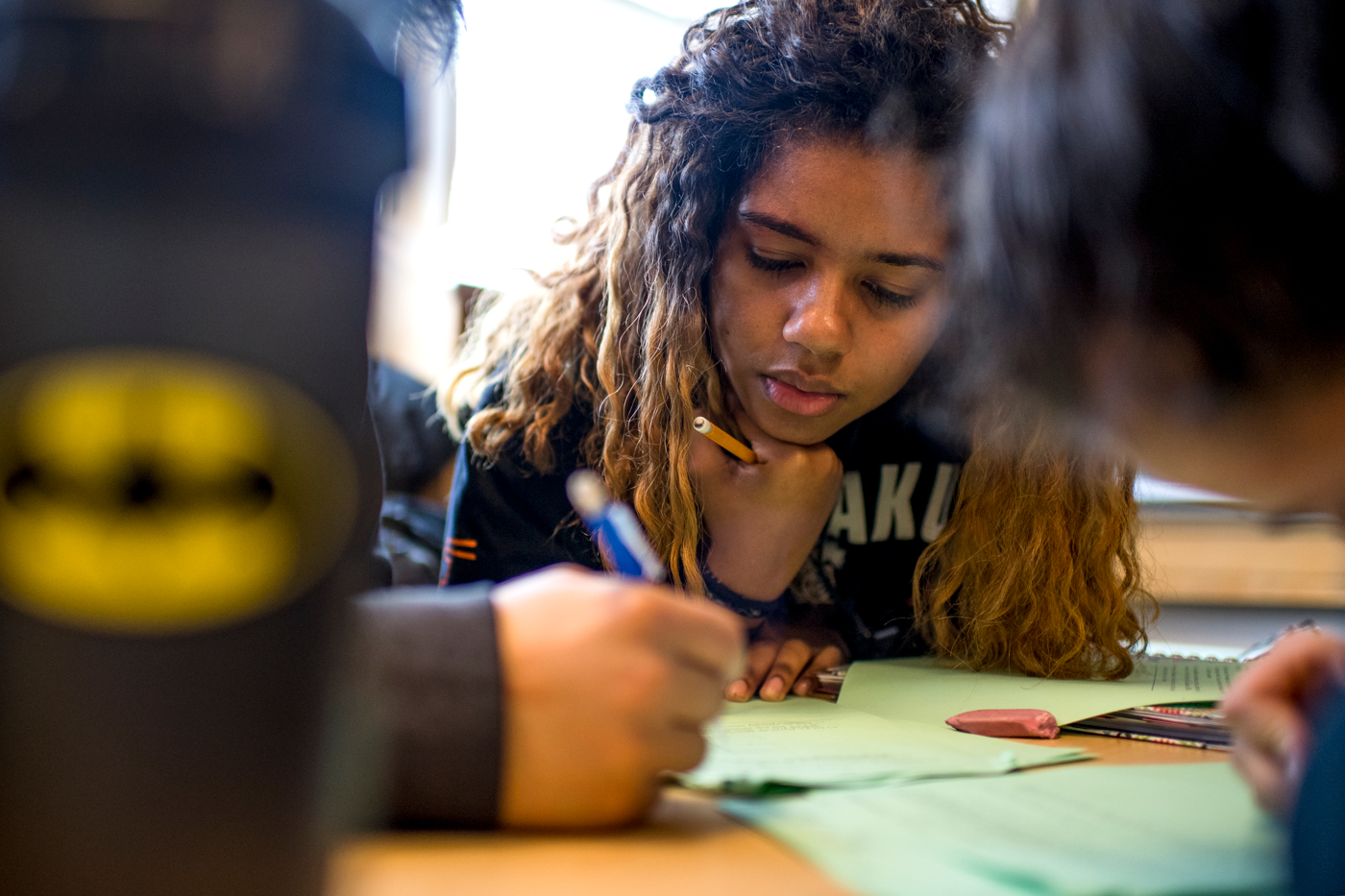
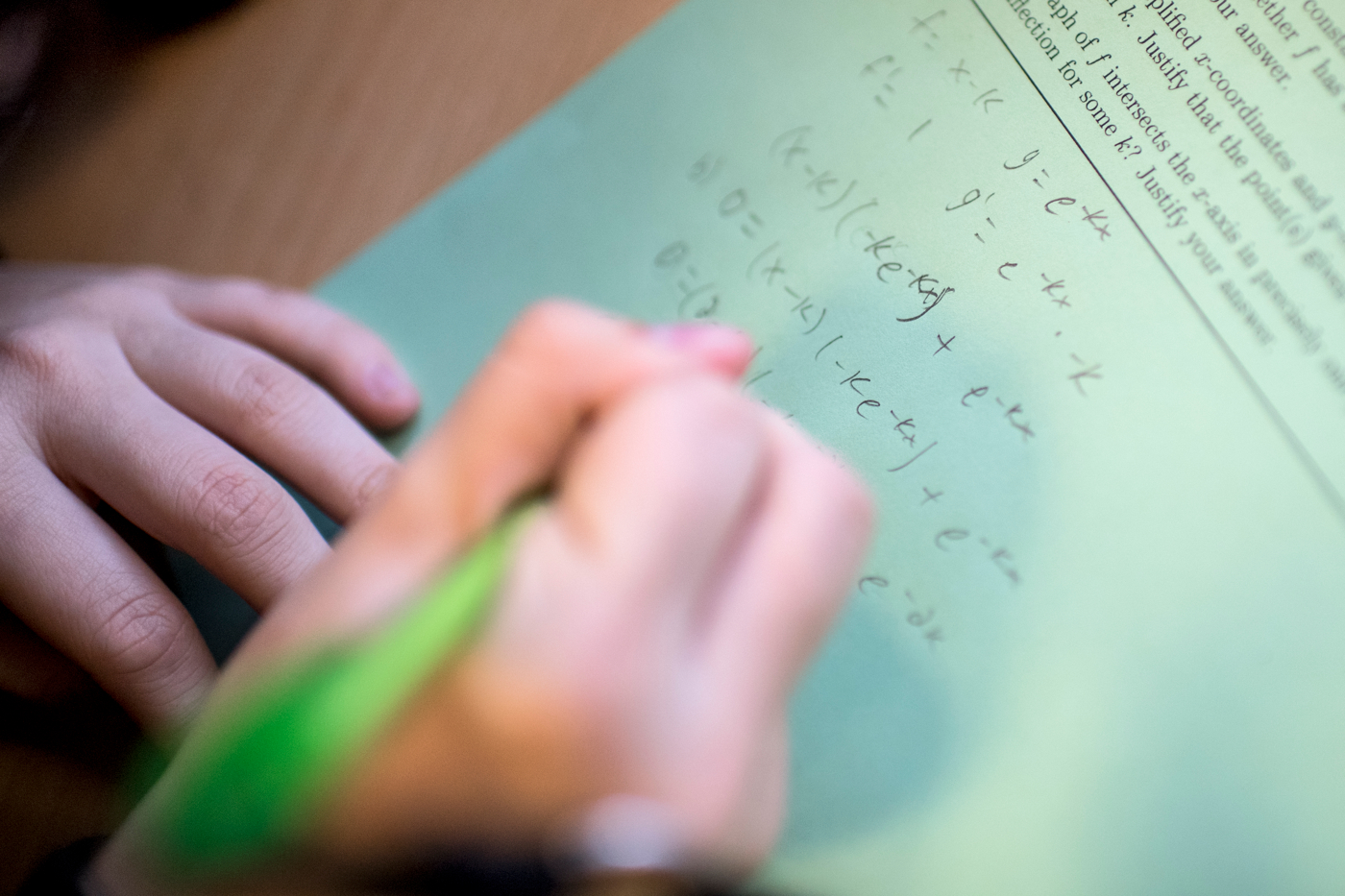
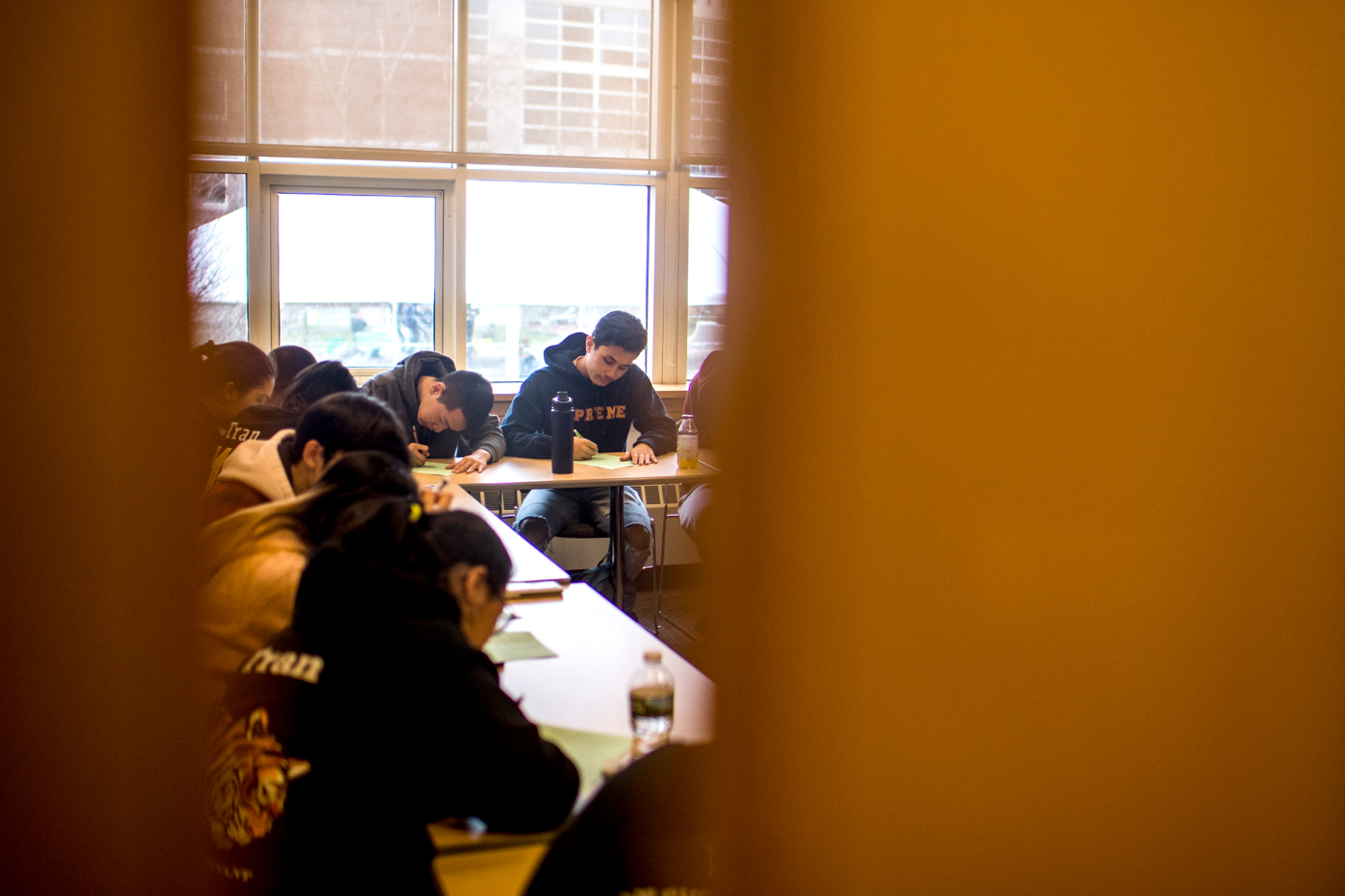
“Our department is committed to a long-term investment in you as students,” Rajini Jesudason, a part-time lecturer at Northeastern who organized Calculus Field Day, told the students before they began their tests. “We’re in Boston. We’re your neighbors.”
Students at Calculus Field Day took two tests in either calculus or pre-calculus, depending on their level of knowledge. The exams were then graded, and trophies were awarded to the groups that earned first, second, and third place across various categories. The students clapped and roared with excitement as the winners’ names were announced.
Jesudason said that Calculus Field Day is one of the primary programs that the math department runs, in partnership with Boston Public Schools, to build relationships with local youth and inspire their continued interest in calculus. Another is Bridge to Calculus, which is a six-week summer program designed to help students prepare for their high school calculus courses. Northeastern has held Calculus Field Day for 10 years, and run the Bridge to Calculus program for more than 20 years.
Boston Mayor Martin J. Walsh visited Northeastern’s campus on Tuesday to meet students at the event and encourage them to continue studying math.
“Whatever you want to accomplish in life, you can accomplish it if you put your mind to it, and if you put determination into it and put some hard work into it,” Walsh told the students.
One of those students was Brian Kubinec, an 11th-grader who lives in East Boston. He says that he enjoys learning the different theories, equations, and problems that calculus has to offer. He also sees mathematics as a foundational tool for understanding electrical engineering, which is the area in which he plans to major in college.
Kubinec participated in the Bridge to Calculus program last summer, and said he was eager to see how far his knowledge had advanced by the time Calculus Field Day rolled around.
“I was nervous before taking the test today, but doing this competition will definitely help me when I’m taking the AP exam,” Kubinec said afterward.
Tristan Campbell spoke first-hand about how Northeastern’s calculus programs for high school students pay off. He took the Bridge to Calculus program a decade ago, and the experience inspired him to later serve for three summers as a mentor to younger students in the program. He’s now a software developer at Dell EMC in Hopkinton, Massachusetts.
Campbell urged the students in attendance to continue investing in their math education, “because I believe you are tomorrow’s engineers, scientists, and mathematicians.”
“It isn’t about really being the best student or being the smartest, but we all have the capacity to learn,” Campbell said. “In order to leverage the ability to learn, you must have a basic curiosity, and it’s this curiosity that will lead you to pursue knowledge.”
For media inquiries, please contact media@northeastern.edu.
